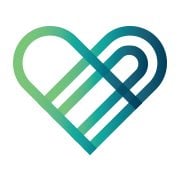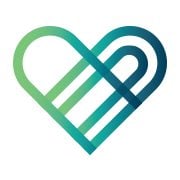Pillars
Drug Rehab Center in Hickory Hills, Illinois
- Dual Diagnosis
- Alcoholism
Pillars Mental Health Center is an accredited mental health facility in Hickory Hills, IL, offering specialized residential and outpatient services for individuals struggling with Alcoholism and Co-Occuring Disorders, utilizing evidence-based practices and providing individualized treatment plans.
About Pillars in Illinois
Pillars Mental Health Center, located in Hickory Hills, IL, is an accredited and comprehensive mental health facility that offers specialized residential and outpatient services for individuals struggling with Alcoholism and Co-Occuring Disorders — more commonly known as dual diagnosis. Their outpatient program utilizes evidence-based practices such as cognitive behavioral therapy (CBT), family therapy, group therapy, trauma treatment, life skills, and individual therapy. Therefore, receiving an individualized, comprehensive treatment plan that caters to the individual’s needs and goals.
Pillars Mental Health Center is committed to helping individuals struggling with Alcoholism and Co-Occuring Disorders heal and become empowered. Passing the rigorous accreditation standards of the Commission on Accreditation of Rehabilitation Facilities (CARF) ensures the quality of care provided at Pillars meets the highest standard. Furthermore, their services are typically covered by major insurances including private health plans. Pillars is dedicated to encouraging clients to take an active part in their own recovery and to achieve the life they desire.
Genders
Ages
Modality
Additional
Accreditations

CARF
The Commission on Accreditation of Rehabilitation Facilities (CARF) is a non-profit organization that specifically accredits rehab organizations. Founded in 1966, CARF's, mission is to help service providers like rehab facilities maintain high standards of care.
Conditions and Issues Treated
Dual diagnosis refers to someone who has both an addiction and a mental or emotional illness. Dual diagnosis treatment includes therapy for both issues simultaneously, allowing for effective treatment of either.
Sometimes people with addiction disorders also have co-occurring disorders like depression, anxiety, bipolar disorder, etc. These require specialized treatment programs that address both drug and alcohol addiction as well as psychiatric illnesses. Some rehabilitation facilities provide patients with co-occurring disorders a program with highly integrated services and a clean, distraction-free environment.
Levels of Care Offered
This center offers a variety of custom treatment tailored to individual recovery. Currently available are Dual-Diagnosis, Intensive Outpatient, Outpatient, with additional therapies available as listed below.
An intensive outpatient program (IOP) is effective for drug rehab, but it can take six months to several years to complete. It’s the most popular type of drug rehab program in the United States. One example of a successful IOP success story is actor and comedian Chris Rock, sober since 1990.
An IOP allows participants to spend nights at home while attending meetings throughout the day. It’s a good way for drug addicts to make a recovery plan in an outpatient setting while still supporting their loved ones.
Alcohol or drug addiction, or co-occurring disorders, are treated in an outpatient program. The patient must attend therapy and other programs at the facility but can return home each night.
Outpatient treatment allows recovering addicts to live at home while receiving addiction treatment. Outpatients can attend group sessions for a few hours per week. Outpatients may also continue to work full time and study/attend school without interruption if they choose.
Therapies & Programs
Different people react differently to various treatment options. Some drug rehabilitation centers offer individualized treatment that caters to the specific needs of a drug addict. The best treatment option varies on an individual depending on the type of drug abused, life history, medical condition of the person, social circumstances, and the environment they live in now.
When a person enters drug rehab, they usually have anti-drug associations such as withdrawal symptoms, stress, cravings, etc. The first step of drug rehab is to detoxify the body from any residual substances in it. Drug rehabilitation centers usually employ trained medical professionals to help in this process. Usually, the initial detoxification lasts for five days, where the person is monitored under close supervision.
Family therapy sessions typically involve the addict and their family members. During these sessions, a therapist will work with everyone involved to help them understand addiction and find healthy ways of coping without substance abuse.
Some addicts might feel embarrassed about their substance abuse problems. By encouraging family members to attend these sessions, therapists can show addicts that they’re not alone in dealing with addiction. Therapists can also work with family members to help them understand addiction and learn how to offer support and encouragement to their loved one as they deal with substance abuse issues.
Attending group therapy at Pillars in , is a useful way for those seeking sobriety to realize they aren’t the only one going through it.
This is when a group of people on different recovery phases get together and talk about what they’re going through, their triggers, successes, and failures. This can include alternative types of therapies too! Group therapy may occur on an outpatient or inpatient basis with groups that have no pre-existing relationships outside the session, unlike support groups where everyone already knows each other beforehand.
Trauma therapy is a form of therapy used to help people process and understand past traumas. This can help struggling addicts, as many people turn to drugs or alcohol to mask the pain of their past. Trauma therapy can be done in several ways, such as through visualization, discussion, and writing down thoughts and feelings. The goal is to help the individual understand why they are having problems coping with certain situations and changing how they think and react to things. This is often done in tandem with other therapies to treat the underlying issues associated with addiction.
The idea behind trauma therapy is that while some people can experience traumatic events and not have lasting psychiatric symptoms, many others will. In these cases, memories get hidden from consciousness but continue to influence how the person processes and copes with things in their life. They may avoid situations that resemble what happened or become suddenly angry or irritated to a situation that reminds them of a past event. With the help of a therapist, people can go back over memories and experiences. This helps them understand why they are having problems coping with certain situations and changing how they think and react to things.
Cognitive Behavioral Therapy is a type of psychotherapy that helps people address the thoughts and behaviors that may have led to their addiction. It also helps change negative thoughts into positive ones and promotes healthy communication between addicts and those around them. CBT is an efficient treatment for individuals suffering from all sorts of addictions.
Cognitive Behavioral Therapy (CBT) focuses on the underlying thoughts and behaviors that caused the problem of addiction in the first place and may cause a relapse. Negative feelings are common in drug abuse disorders, but they can lead to co-occurring disorders if not recognized. CBT involves strategies that help to change the behavior pattern by restructuring negative thoughts into positive ones. It helps to remove these feelings, and it provides long-term benefits. Also, CBT promotes self-awareness, self-control and can be administered as a mono-therapy or as part of combination therapy.
Life Skills Services offered at Drug Treatment Centers assists addicts in their recovery by teaching them healthy coping mechanisms that will aid them in becoming sober, focussing on helping people enter into, and maintaining long-term sobriety. Drug Treatment Centers provide Life Skills Services at varying levels of intensity, specific to the needs and requirements of each patient.
Life Skills Services offered at Drug Treatment Centers assists addicts in their recovery by teaching them healthy coping mechanisms that will aid them in becoming sober, focussing on helping people enter into, and maintaining long-term sobriety. Pillars in Hickory Hills, Illinois provide Life Skills Services at varying levels of intensity, specific to the needs and requirements of each patient.The benefits of Life Skills Services offered at Drug Treatment Centers:
- Restores hope and empowerment — Helps addicts believe that recovery is possible and instills a new confidence in their ability to achieve a positive, drug-free future
- Enhances family involvement — Encourages families to get involved in the recovery process and supports their understanding and encouragement of healthy behavior.
- Increases patient’s compliance — Helps patients take responsibility for and ownership of their recovery and encourages continued progress
- Reduces relapse rates — Encourages long-term abstinence and emphasizes the importance of establishing sober support systems.
Payment Options Accepted
For specific insurance or payment methods please contact us.
Is your insurance accepted?
Ask an expert, call (888) 674-0062
Additional Details
Specifics, location, and helpful extra information.
Hickory Hills, Illinois 60457 Phone Number(708) 745-5277 Meta DetailsUpdated November 25, 2023
Staff Verified
Pillars Patient Reviews
There are no reviews yet. Be the first one to write one.
Hickory Hills, Illinois Addiction Information
In 2016, more than 2,350 Illinoisans died from drug overdoses. More than 5,500 deaths annually occur in Illinois due to the abuse of alcohol and other drugs. 7.17% of Illinois residents reported using illicit drugs in the past month (2018). Substance abuse costs the state approximately $3.5 billion every year.
Treatment in Nearby Cities
- McHenry, IL (47.4 mi.)
- Palos Hills, IL (2.6 mi.)
- Vienna, IL (304.2 mi.)
- Jerseyville, IL (223.9 mi.)
- Kewanee, IL (114.2 mi.)
Centers near Pillars




The facility name, logo and brand are the property and registered trademarks of Pillars, and are being used for identification and informational purposes only. Use of these names, logos and brands shall not imply endorsement. RehabNow.org is not affiliated with or sponsored by Pillars.


